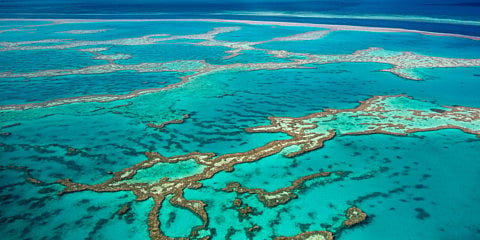Can we beat climate change by 2030?
To prevent climate change, countries must become sustainable

We find ourselves in a crisis regarding climate change today. Look at our coral reefs - once a gigantic and multi-coloured haven for aquatic life - and especially, the Great Barrier Reef of Australia. A massive quarter of the reef has now crumbled into a bleached white structure.
We are the ones to blame for the ‘murder’ of this magnificent natural beauty. We have caused this devastation via climate change through our lack of foresight. The ever-increasing temperatures due to climate change have had drastic consequences on the sea, as waters have grown warmer, causing coral reefs to lose the algae that gives them their vibrant colour and life. This has eventually led to the decaying of the reefs, which in turn has had a deathly effect on the entire ecosystem.
With this in mind, it only makes sense to be a pessimist and disagree with the notion that we may be able to defeat climate change by 2030. While it is true that sustainability has skyrocketed in some countries, it is also true that various countries like Vietnam, India, Pakistan and others are too busy dealing with problems that have immediate repercussions, like poverty and human trafficking, as well as terrorism. Hence, sustainability has taken a backseat.
When the Kyoto Protocol was first implemented in 1997, the world was confident that this would signal the beginning of a sustainable future — one wherein our luxuries would not critically scar Mother Nature. However nearly ten years later, we can truly regard it as a ‘would-be success’ that failed, with global carbon emissions on the rise.
It is also interesting to note that the US has not ratified this Protocol, thus ensuring that they have no legal obligation towards the Kyoto Protocol targets, which is ironic, considering former US president Barack Obama’s rhetoric regarding climate change being humanity’s greatest threat. Even the generally kind and caring Canada withdrew from this treaty in 2014. Today, the Kyoto Protocol is like a metaphorical class, filled with children (countries) that have no real teachers or leaders.
We have been on a rampage against Nature since the Industrial Revolution that began in the 19th century, that some would argue continues even till today, in developing countries of the world. The countries that have the resources to become sustainable are, ironically, only those that underwent the Industrial Revolution, using coal to release gases that cause climatic change.
Now, developing and developing countries find themselves in a dilemma; to prevent climate change they must become sustainable but to become sustainable they must undergo the Industrial Revolution that in turn leads to climate change.
- The reader is a grade 11 student based in Abu Dhabi


